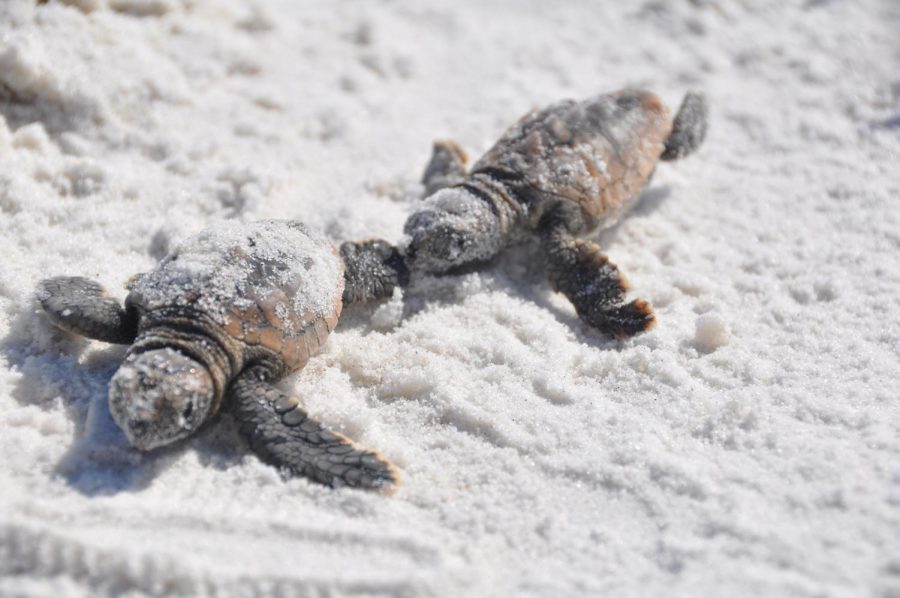Turtle nesting season means ‘lights out’
Sea turtles have begun hatching along Brevard County’s beaches.
August 11, 2018
With sea turtle nesting season in full swing, beachside residents are once again subject to the local ordinances such as the “lights out” policy which limits the usage and placement of indoor and outdoor lights visible from the beach, so as not to disturb any of the turtles.
“My family and I love walking to the beach to look at the tracks and watch the eggs hatch,” junior Kaitlin Curtis said.
Officially dubbed Article III-Chapter 46 of the Brevard County Code of Ordinances, the policy was introduced in Brevard county in 1985 and was modified in 1990 and 1993. According to the Index Nesting Beach Survey conducted by the Fish and Wildlife Research Institute, the initial implementation was followed by a 17.76 percent rise in total sea turtle nests in Brevard county, while the number rose by 41.29 percent in the wake of the modified version in 1990. Sheila Harnois, the media coordinator for the Sea Turtle Preservation Society, said she finds the policies effective.
“Sometimes I feel that the earth’s problems are too big to handle, then I see those results, and wow! People can make a difference,” she said.
The “lights out” policy dictates that any light visible from the beach must be either repositioned or shut off so that can no longer be seen. Individuals that do not comply with the policy are subject to a fine of up to $500 and/or imprisonment in the county jail for up to six months.
“Let me caution you never to confront people over this,” Harnois said. “You can inform them of the ordinances, but that’s all you can do. This especially applies when you are on the beach at night. If you know of someone in continuous violation, you might call the police department to ask for their help.”
Other potential offences during sea turtle nesting season include approaching a sea turtle from less than 50 feet away (not including turtles in danger) to ensure that they won’t be distracted while nesting. Many communities also have guidelines restricting dogs on the beach, who may harass the turtles and interfere with existing nests.
“I believe that education is a lifelong project, and we must continue to inform new generations and new snowbirds of the treasure we have in the sea turtles, and how we can help them to flourish,” Harnois said.
Harnois said members of the Sea Turtle Preservation Society go door-to-door distributing information about nesting season and the policies surrounding it.
“That is one of the missions of STPS,” she said. “Raising awareness for residents and tourists alike.”
Despite not living beachside, junior Julia Travis expressed her interest in the policies established.
“I actually have a street light right outside my window, so I wish we had that policy,” Travis said.
Travis went on to describe her appreciation of sea turtles and her hope that the lights out policy may also help decrease overall light pollution.
The policy is in effect from 9 p.m. to 5 a.m. until Oct. 31.
By Emily Lovelock.





















































